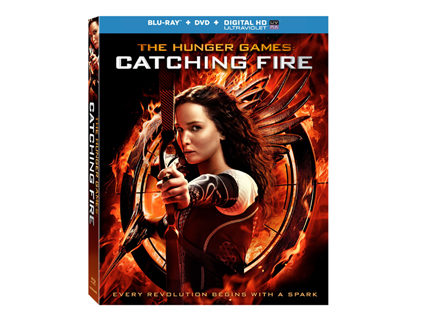It won’t be garnering any Academy Awards, and the franchise may face some challenges finishing its final installments without recently deceased star Philip Seymour Hoffman (Plutarch Heavensbee), but The Hunger Games is catching fire among civics educators. We’re not suggesting that students be pitted against each other in to-the-death What-do-you-know-about-the-Constitution competitions! Yet, unlike most entertainment fare, the books authored by Suzanne Collins and the successful films being adapted from them do present topics relevant to social studies, especially to civics and government. The series provides opportunities for exploring such issues as totalitarianism and civil liberties, celebrity and media influence, censorship and propaganda, civil disobedience and revolution, regional geography—the list could go on.
Education blogger Glenn Wiebe notes that “for many of today’s tweeners and teens . . . , The Hunger Games series is the storyline that has been part of their growing up years.” It makes sense, therefore, for teachers to build on the interest that many of today’s students have in the dystopian trilogy. Who knows, the heroine and heroes of The Hunger Games might inspire a brave new generation of courageous and resourceful citizens willing to sacrifice for others—or to start a revolution.
The Hunger Games has been described by shmoop.com as “a thrilling mash-up of great dystopian novels . . . and the current reality television scene. Think George Orwell meets Survivor and hangs out with Gladiator.” Although the story of Katniss Everdeen is fictional, for many young people it may be a more accessible jumping-off point for understanding totalitarianism than past historical realities like the Soviet gulags or Pol Pot’s “killing fields.” The Hunger Games also harks back to Greek mythology (the myth of Theseus and the Minotaur), thereby opening up the possibility of interdisciplinary study. In a time where reality TV makes entertainment out of everyday lives, why not make education out of everyday entertainment?
Image credit: © PRNewsFoto/Lionsgate/AP Images
Related Links
- “The Hunger Games” Is a Civics Lesson
This article, which calls The Hunger Games “the best civics textbook since George Orwell’s ‘Animal Farm,’” points to how the trilogy opens up opportunities for the teaching of civics around such topics as governmental power, civil liberties, media influence, and responsibilities of citizenship.
(Source: Wall Street Journal, December 4, 2013) - 8 Hunger Games Lesson Plans, Resources, and Activities
A helpful site with resources for teaching civics using The Hunger Games from educator and blogger Glenn Wiebe.
(Source: HistoryTech, October 9, 2013) - The Hunger Games: Suzanne Collins Video Clips
In this collection of short videos, from the official website of The Hunger Games, the author of the trilogy reflects on the story’s classical inspiration in Greek mythology, her contemporary inspiration, and thoughts on desensitization, her target audience, and more.
(Source: Scholastic.com; accessed February 12, 2014) - The Hunger Games Challenge
This website presents a (downloadable) mini-unit titled “Avoiding the Path to Panem,” which challenges students to explore “questions of social class, trust and human connections, and the role that the media plays in forming public opinion and political systems” as these issues relate to The Hunger Games.
(Source: Educurious.org; accessed February 12, 2014)





cool
I think that both characters are elqauly charming and compassionate in their own ways. Peeta, is more on the gentler side, which doesn’t exactly fit every teen girl’s perfect boyfriend image, but the love he shows overwhelmed me, and many other readers, I’m sure. Four(Tobias) on the other hand would fit the tough, amazing guy figure. He, in my opinion, is a major heart-throb, and if he were a real person, and I had the opportunity to meet him, I sure as hell would have an fabulous time. Veronica Roth has captivated the idea of true love, and she expresses it in her writing beautifully. I love this book and I recommend it to every one of my friends. The jaw-dropping romance and genius of the way it’s written changed my life, and I hope it can change many others’.